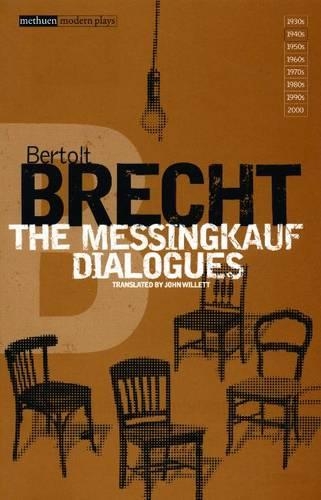
Messingkauf Dialogues
(Paperback, Revised - 2nd edition, revised)
Publishing Details
Messingkauf Dialogues
By (Author) Bertolt Brecht
Translated by John Willett
Edited by John Willett
Bloomsbury Publishing PLC
Methuen Drama
1st August 2006
Revised - 2nd edition, revised
United Kingdom
Classifications
General
Non Fiction
792
Physical Properties
Paperback
112
Width 129mm, Height 198mm, Spine 7mm
100g
Description
Written between 1939-1942 "The Messingkauf Dialogues" are among the most concise, witty and light-hearted of all Brecht's theoretical discussions of theatre. They are the blue print for Brecht's radical re-creation of theatre making in 1930s and mark a transition from "realism" to "modernism" in his plays. Here actor, actress, dramaturg (or literary advisor) and electrician argue with the Brechtian Philosopher who wants to exploit their talent for his own purposes. The result is a debate about the place of art in society.
Author Bio
Bertolt Brecht (1898-1956) is acknowledged as one of the great dramatists whose plays, work with the Berliner Ensemble and critical writings have had a considerable influence on the theatre. His landmark plays include The Threepenny Opera, Fear and Misery of the Third Reich, The Life of Galileo, Mother Courage and Her Children and The Caucasian Chalk Circle. John Willett (1917-2002) was the greatest English language authority on Brecht the writer and man of the theatre. The foremost translator and editor of Brecht's drama, poetry, letters, diaries, theatrical essays and fiction, Willett produced a dozen volumes for Methuen Drama on the greatest modern German writer. John Willett (1917-2002) was the greatest English language authority on Brecht the writer and man of the theatre. The foremost translator and editor of Brecht's drama, poetry, letters, diaries, theatrical essays and fiction, Willett produced a dozen volumes for Methuen Drama on the greatest modern German writer.
